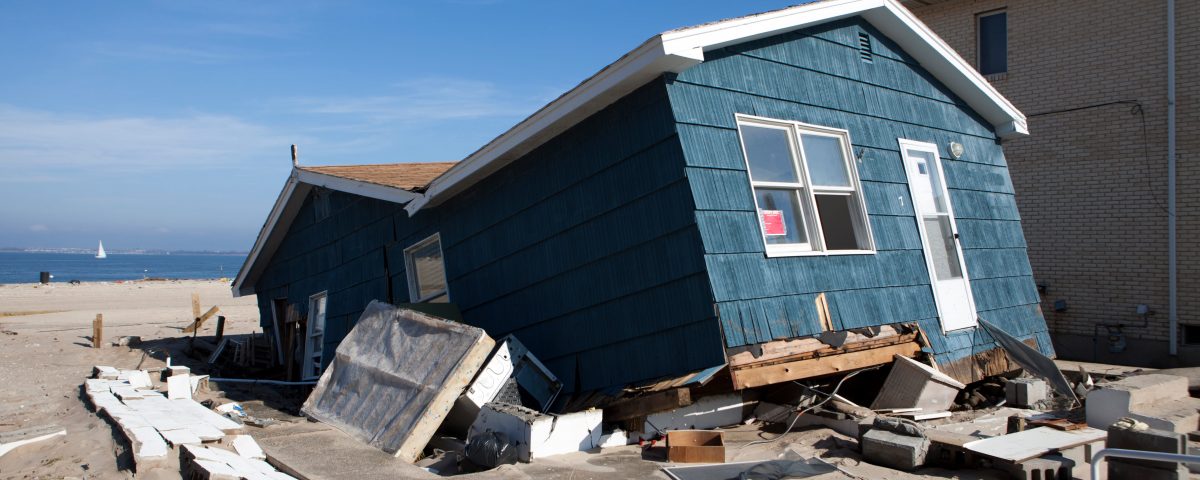- WE’RE HERE TO HELP | SE HABLA ESPAÑOL
- 800.586.5555
Tips for Surviving a Hurricane at Home
Tips for Surviving a Hurricane at Home

Floridians usually shelter in place for one of three reasons:
- They just aren’t aware a hurricane is on its way until it’s too late to evacuate
- They don’t believe the hurricane poses a serious enough risk to justify evacuating
- There are logistical hurdles that make evacuation difficult (limited mobility, pets, etc.)
Surviving a hurricane from home might be scary, but there are tips you can follow to increase your chance of weathering the storm safely.
Is Sheltering at Home Safe?
Sheltering at home can be dangerous and challenging, but most of the time it is safer to stay in your house than risk getting caught outside in a hurricane. Where you’re located in relation to the storm and the storm’s severity are also major variables to consider.
While hurricane tracking has improved greatly in recent decades, storms can still shift course. Many Floridians have been caught in unpleasant situations after a storm they assumed would miss their home turned their direction.
Not every hurricane or tropical storm is equal, and there are scenarios where you can safely shelter in place. However, sheltering in place is rarely preferable to evacuation if a hurricane warning has been issued for your area. One of the few scenarios in which you’re better off sheltering in place is if you don’t have time to fully escape and could potentially be caught mid-evacuation by the hurricane.
Preparation for the Hurricane
Food
Make sure you and your family have a few days’ worth of water and nonperishables like canned tuna or beans. Peanut butter is easy to store and is an excellent source of protein.
Electricity Sources
Keep your phone charged by using a portable power bank. Since power banks must also be recharged, this option will only work temporarily. Solar powered portable power banks can be extremely useful if the power in your neighborhood is knocked out for an extended period after a storm.
Gasoline-powered generators can be useful after the storm if you can run it safely in a dry, outdoor space far away from people. Generators are extremely dangerous if used incorrectly or when they are inadequately ventilated. Do not run gasoline or diesel power generators during a hurricane or attempt to run a power generator in flooded areas.
Other Needs
There are some other things you should make sure you have before a hurricane, such as medicines. If anyone in your household takes prescription medications, you should make sure their prescriptions are filled and picked up before the hurricane.
If there are babies in your house, you will also need diapers, baby wipes and baby food/formula. Don’t forget to stock up on food for your pets.
You should also consider contacting your insurance company and finding out if your current coverage is adequate, whether you qualify for a lower hurricane deductible and how much that may cost.
Be Smart During the Hurricane
If you shelter at home during a hurricane, you should do exactly that: stay at home. Do not venture out of your home until the hurricane has safely passed. Be warry of the misleading calm of a hurricane’s eye.
The safest room in your home is on the lowest level in the middle of your home. Stay away from exterior windows, walls or doors. A bathroom or closet may be the safest place during particularly extreme winds.
If your home begins to flood, seek shelter upstairs, if possible, but continue to avoid windows.
Stay Safe and Calm After the Hurricane
After attending to any immediate medical needs, you should assess the damage sustained by your home/yard. Take pictures of home damage and any damaged property to help with your property damage insurance claim.
You should then report all your house’s damage to your insurance company. Hurricanes are devastating, so you should try to remain as calm as possible when dealing with emergency personnel and the insurance company.
Moving Forward After a Hurricane in Florida
Hurricanes are traumatic events for families in Florida. It can be even more upsetting if your insurance company does not treat your property damage claim fairly. If this is the case, you should think about consulting with a public adjuster or a property damage lawyer.
